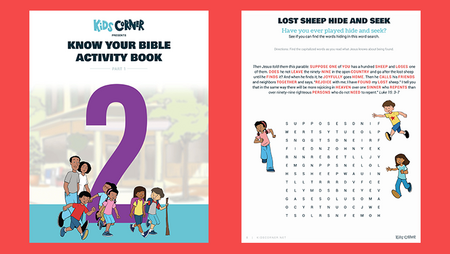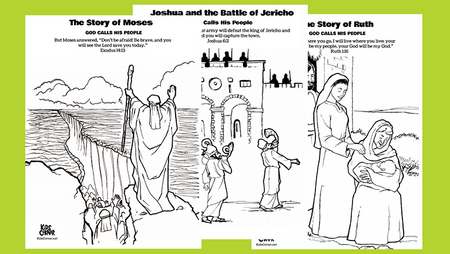
Every Little Thing We Do
Bible Verse
23 But David said: My friends, don't be so greedy with what the has given us! The protected us and gave us victory over the people who attacked. 1 Samuel 30:23, 24
Our kids acquire a deep understanding of fairness very early on and are quick to point out when events don't match up to what they deem "fair." This innate sense of fairness fits in neatly with a culture that rewards people more for heroic (often superhuman) deeds than for everyday faithfulness. In this context, it can be confusing for kids to understand Bible stories like David's equal sharing of resources in 1 Samuel 30 or Jesus' parable of the workers in the vineyard (Matthew 20:1-16). How do we guide our kids to find worth in their everyday lives, especially in the small things?
Practicing thankfulness
Research has shown that practicing gratitude actually strengthens your child's brain in the areas of social cognition and empathy, among many other benefits. This should come as no surprise to those of us who follow Christ, given that God has wired us to work best when we’re thankful (Colossians 3:15-17). Expressing thankfulness as a family will help us love others well, because it turns our eyes away from ourselves and toward God as the giver of all good gifts.
Over dinner, ask your children to name one or two things they are thankful for from their day. Share with them what you're grateful for too. When appropriate, give particular attention to relationships. Keep a weekly list of some of the highlights. When they whine or complain about something, read from the list as a reminder of God's gifts. This will help your children to think less about what they get or don't get in exchange for their work, and more about the daily gifts God gives them.
Celebrate them
Celebrate your children’s gifts and abilities. Give them tasks that fit well with who they are and more achievable goals for their levels of ability. Encourage interests and hobbies that nurture their talents. Point out specific things that they do and tell them why they were helpful or important. Here are some simple activities that will provide a way for them to realize the value of their work:
- Ask your child to help you buy groceries or cook a meal for an elderly neighbor or a family in need, then bring them along to drop off the food.
- Write letters to friends and family together, sharing encouraging words and affirmations.
- Practice the songs your church sings at home, emphasizing that God loves hearing every voice when we worship (you can even ask your worship leader to send out a list ahead of time).
- Pray regularly together for those in need in your community and church.
Paul encourages us that every little thing we do and every little word we speak should be rooted in gratitude and done in the name of Jesus (Colossians 3:17). Tellingly, this directive follows a litany of ways the children of God are to love each other in unity, emphasizing that what we do for others, we are really doing for God. What a great gift it is to show God's love to his people!
Want to do a deep dive? Check out Family Fire's article Teaching Stewardship Through Pennies and Pancakes






